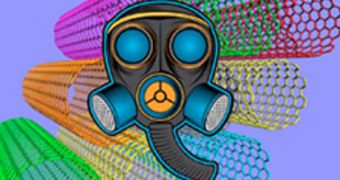Nanotechnology is one of the fastest growing fields of research today, with numerous research groups and thousands of scientists working on it every day. But no country has developed any comprehensive set of regulations aimed at keeping researchers safe from the hazards related to these investigations to date. Therefore, this task is left to individual research institutions and universities, which are apparently also unable to produce such guidelines.
A new survey, conducted on experts working with nanotechnology, determined that most of the participants had no idea if the organization they were working for had such regulations in place, Chemistry World reveals. The study was conducted on 240 scientists, who were asked whether their place of work had official safety standards for employing nanomaterials. Of the respondents, 27 percent were unsure, while 50 percent said that such guidelines were inexistent. Researchers at the University of Zaragoza Nanoscience Institute of Aragon, in Spain, were in charge of the research.
“We are nanotechnology researchers ourselves, and many times we are faced with the problem of how to handle our materials, how to avoid contamination, how to dispose of them, and so on,” UZ expert Jesus Santamaria, who is also a coauthor of the study, explains. He adds that creating guidelines for nanomaterials is indeed a very complex task, because there are many factors at play in such an analysis, including the size, shape, chemical composition, and solubility of the targeted particles.
“Even without knowing the nanospecific risks of airborne particles it should be clear to anyone that our lungs should be protected from the inhalation of any sort of particles,” the CEO of Switzerland-based startup company Nanograde, Samuel Halim, says.
“As the scientific community investigates questions concerning toxicity, exposure, risk assessment, and medical health effects related to nanomaterials, the role of the Federal and State governments will become clearer,” New York State University Assistant Vice President for Nanohealth Initiatives Sara Brenner adds. The US Congress is now analyzing the proposed Nanotechnology Safety Act of 2010, which, if passed, will allot $25 million annually for investigations on the effects of nanoparticles on humans and ecosystems.

 14 DAY TRIAL //
14 DAY TRIAL //